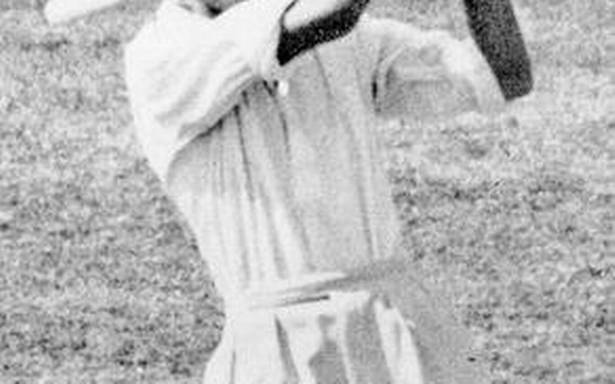Cricket meant everything to the legendary Indian cricketer, but it wasn’t everything to him
There are lessons for today’s players from Tiger Pataudi, whose 80th birth anniversary it was yesterday. Cricket meant everything to him, but it wasn’t everything to him. The difference is crucial to understanding one of the great captains. It explained both his deep involvement with the game and his apparent detachment from it.
In the last paragraph of his autobiography Tiger’s Tale, he wrote, “In the country of the blind, it has been said, the one-eyed man is king. But in the keen-eyed world of cricket, a fellow with just one good eye-and-a-bit has to settle for something less than the perfection he once sought. Lucky me, despite this, to have been able to play the game all over the world in the company of the giants.”
Amalgam of heroes
Pataudi was my first real hero; he took over from the combination of comic book and mythological heroes one had begun to grow out of.
The Marvel superheroes were just becoming accessible in India, so Tiger was seen as a combination of Superman, Phantom, Krishna — with the strength of the first, the intelligence of the second and the mischief and humour of the third. Children do such things rather well.
And then I met him. I must have been nine or ten, and it was at a Ranji Trophy match in Bengaluru. An uncle had provided a ticket in the privileged section, and as Tiger came out of the pavilion ahead of the day’s play, he called a couple of us youngsters out into the field to take catches from him. Those were innocent days.
At one point Pataudi made as if to throw the ball in the air but simply lobbed it straight at me. Fooled by the movement of his head, I looked up – and dropped the catch. “Watch the ball, always watch the ball,” he said with his lopsided grin. It was enough. I was hooked for life.
When I took over as the sports editor of a national newspaper, I was the youngest at that level. “How did you handle having everybody else senior to you when you became captain at 21?” I asked Pataudi then. He was not one to dole out advice but when he did, you listened.
“Look after the younger people, the older folk will always resent you no matter what,” he said, “I had men like Jai (M.L. Jaisimha), Pras (Erapally Prasanna), Farokh (Engineer), Dilip (Sardesai), and this was going to be the core for the future.”
Mischievous
I never tire of hearing stories about Tiger. While editing a book on him, I was privy to some family stories. The sense of mischief never left him.
Bishan Bedi has a story of how Tiger asked him to bowl the first over on the third day although he had bowled the last over on the previous day in a Duleep Trophy match. “Let’s see if the umpires are awake,” Tiger explained.
Engineer has not been able to live down how he was taken in when Tiger pointed out that the Victoria Memorial in Kolkata was his place of residence.
‘Sublime’
It wasn’t only the players. The evolutionary biologist Richard Dawkins has written in his autobiography, “The best cricketer I ever saw playing in Oxford was the Nawab of Pataudi (Tiger), the Oxford captain and my exact contemporary at Balliol. As a batsman the effortless way he steered the ball to outwit the fielders was sublime. But it was as a fielder himself that he especially impressed me…”
One of my favourites is this gem from left-arm spinner Colin Drybrough, passed on by Sharmila Tagore: “At Oxford I was Secretary in the year he was captain.
He asked me to carry him from the dressing room onto the ground at Lord’s at the start of the University Match against Cambridge to ensure he did not break a leg going down stairs. If you do not make it onto the ground you do not get your ‘Blue’.
“Imagine the kerfuffle if I had piggybacked him through the Long Room! We made sure he reached the turf and he went on to score 131 emulating his father who also hit a century in his first University match for Oxford.”
Tiger could convince most people to do what he wanted; it wasn’t just charm, although he had oodles of that. You simply couldn’t believe that a blue-blood had such mischief running in his veins.
Lesson for today’s players
Tiger was a walking, running, cover-driving self-help manual. He was good enough to play for India six months after the accident that cost him his eye — that told you all you needed to know about him. The passion, the grit, the pragmatism and the temperament to accept without complaint whatever life had to offer.
A lesson, and not just for today’s players.
Source: Read Full Article

